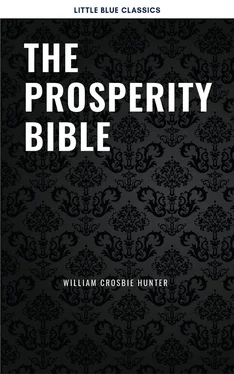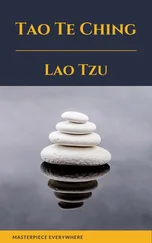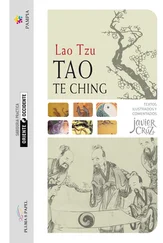Thinking is the most fascinating and exhilarating of all mental exercises. Once realize that your opinion on a subject does not represent the choice you have made between what Dr. Cerebrum has written and Professor Cerebellum has said, but is the result of your own earnestly-applied brain-energy, and you will gain a confidence in your ability to speak on that subject that nothing will be able to shake. Your thought will have given you both power and reserve power.
Someone has condensed the relation of thought to knowledge in these pungent, homely lines:
"Don't give me the man who thinks he thinks, Don't give me the man who thinks he knows, But give me the man who knows he thinks, And I have the man who knows he knows!"
Reading As a Stimulus to Thought
No matter how dry the cow, however, nor how poor our ability to milk, there is still the milkman—we can read what others have seen and felt and thought. Often, indeed, such records will kindle within us that pre-essential and vital spark, the desire to be a thinker.
The following selection is taken from one of Dr. Newell Dwight Hillis's lectures, as given in "A Man's Value to Society." Dr. Hillis is a most fluent speaker—he never refers to notes. He has reserve power. His mind is a veritable treasure-house of facts and ideas. See how he draws from a knowledge of fifteen different general or special subjects: geology, plant life, Palestine, chemistry, Eskimos, mythology, literature, The Nile, history, law, wit, evolution, religion, biography, and electricity. Surely, it needs no sage to discover that the secret of this man's reserve power is the old secret of our artesian well whose abundance surges from unseen depths.
THE USES OF BOOKS AND READING
Each Kingsley approaches a stone as a jeweler approaches a casket to unlock the hidden gems. Geikie causes the bit of hard coal to unroll the juicy bud, the thick odorous leaves, the pungent boughs, until the bit of carbon enlarges into the beauty of a tropic forest. That little book of Grant Allen's called "How Plants Grow" exhibits trees and shrubs as eating, drinking and marrying. We see certain date groves in Palestine, and other date groves in the desert a hundred miles away, and the pollen of the one carried upon the trade winds to the branches of the other. We see the tree with its strange system of water-works, pumping the sap up through pipes and mains; we see the chemical laboratory in the branches mixing flavor for the orange in one bough, mixing the juices of the pineapple in another; we behold the tree as a mother making each infant acorn ready against the long winter, rolling it in swaths soft and warm as wool blankets, wrapping it around with garments impervious to the rain, and finally slipping the infant acorn into a sleeping bag, like those the Eskimos gave Dr. Kane.
At length we come to feel that the Greeks were not far wrong in thinking each tree had a dryad in it, animating it, protecting it against destruction, dying when the tree withered. Some Faraday shows us that each drop of water is a sheath for electric forces sufficient to charge 800,000 Leyden jars, or drive an engine from Liverpool to London. Some Sir William Thomson tells us how hydrogen gas will chew up a large iron spike as a child's molars will chew off the end of a stick of candy. Thus each new book opens up some new and hitherto unexplored realm of nature. Thus books fulfill for us the legend of the wondrous glass that showed its owner all things distant and all things hidden. Through books our world becomes as "a bud from the bower of God's beauty; the sun as a spark from the light of His wisdom; the sky as a bubble on the sea of His Power." Therefore Mrs. Browning's words, "No child can be called fatherless who has God and his mother; no youth can be called friendless who has God and the companionship of good books."
Books also advantage us in that they exhibit the unity of progress, the solidarity of the race, and the continuity of history. Authors lead us back along the pathway of law, of liberty or religion, and set us down in front of the great man in whose brain the principle had its rise. As the discoverer leads us from the mouth of the Nile back to the headwaters of Nyanza, so books exhibit great ideas and institutions, as they move forward, ever widening and deepening, like some Nile feeding many civilizations. For all the reforms of to-day go back to some reform of yesterday. Man's art goes back to Athens and Thebes. Man's laws go back to Blackstone and Justinian. Man's reapers and plows go back to the savage scratching the ground with his forked stick, drawn by the wild bullock. The heroes of liberty march forward in a solid column. Lincoln grasps the hand of Washington. Washington received his weapons at the hands of Hampden and Cromwell. The great Puritans lock hands with Luther and Savonarola.
The unbroken procession brings us at length to Him whose Sermon on the Mount was the very charter of liberty. It puts us under a divine spell to perceive that we are all coworkers with the great men, and yet single threads in the warp and woof of civilization. And when books have related us to our own age, and related all the epochs to God, whose providence is the gulf stream of history, these teachers go on to stimulate us to new and greater achievements. Alone, man is an unlighted candle. The mind needs some book to kindle its faculties. Before Byron began to write he used to give half an hour to reading some favorite passage. The thought of some great writer never failed to kindle Byron into a creative glow, even as a match lights the kindlings upon the grate. In these burning, luminous moods Byron's mind did its best work. The true book stimulates the mind as no wine can ever quicken the blood. It is reading that brings us to our best, and rouses each faculty to its most vigorous life.
We recognize this as pure cream, and if it seems at first to have its secondary source in the friendly milkman, let us not forget that the theme is "The Uses of Books and Reading." Dr. Hillis both sees and thinks.
It is fashionable just now to decry the value of reading. We read, we are told, to avoid the necessity of thinking for ourselves. Books are for the mentally lazy.
Though this is only a half-truth, the element of truth it contains is large enough to make us pause. Put yourself through a good old Presbyterian soul-searching self-examination, and if reading-from-thought-laziness is one of your sins, confess it. No one can shrive you of it—but yourself. Do penance for it by using your own brains, for it is a transgression that dwarfs the growth of thought and destroys mental freedom. At first the penance will be trying—but at the last you will be glad in it.
Reading should entertain, give information, or stimulate thought. Here, however, we are chiefly concerned with information, and stimulation of thought.
What shall I read for information?
The ample page of knowledge, as Grey tells us, is "rich with the spoils of time," and these are ours for the price of a theatre ticket. You may command Socrates and Marcus Aurelius to sit beside you and discourse of their choicest, hear Lincoln at Gettysburg and Pericles at Athens, storm the Bastile with Hugo, and wander through Paradise with Dante. You may explore darkest Africa with Stanley, penetrate the human heart with Shakespeare, chat with Carlyle about heroes, and delve with the Apostle Paul into the mysteries of faith. The general knowledge and the inspiring ideas that men have collected through ages of toil and experiment are yours for the asking. The Sage of Chelsea was right: "The true university of these days is a collection of books."
To master a worth-while book is to master much else besides; few of us, however, make perfect conquest of a volume without first owning it physically. To read a borrowed book may be a joy, but to assign your own book a place of its own on your own shelves—be they few or many—to love the book and feel of its worn cover, to thumb it over slowly, page by page, to pencil its margins in agreement or in protest, to smile or thrill with its remembered pungencies—no mere book borrower could ever sense all that delight.
Читать дальше












